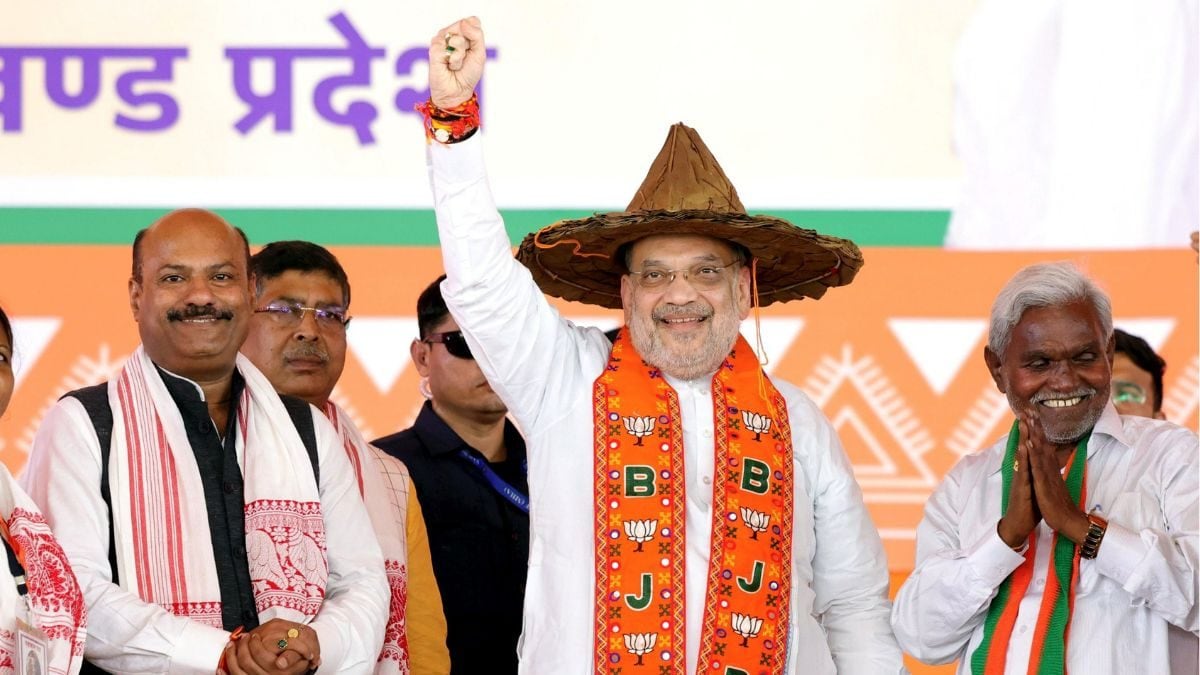Amit Shah’s UCC Gambit In Jharkhand Is Open Challenge To Soren, Test Run For Pan-India Rollout – News18
Last Updated:
By exempting tribals from the Uniform Civil Code, BJP aims to woo the community and sidestep disrupting its own base among those who may view UCC as an infringement on their cultural rights
Amit Shah’s speech, which included a poll promise of a proposed UCC exempting tribals and an assurance to review the Sarna religious code, is significant. (PTI)
Union Home Minister Amit Shah’s pledge to implement the Uniform Civil Code (UCC) in Jharkhand, as part of BJP’s manifesto, marks a crucial step forward towards a nationwide adoption of the same, signing a key exemption for the tribal population and easing their concerns around the contentious code.
Shah’s speech, which included a poll promise of a proposed UCC exempting tribals and an assurance to review the Sarna religious code — a long-pending demand of the tribal community — is significant for multiple reasons.
Why did the BJP choose Jharkhand to make such an important announcement? And what is the message the party wants to send to the tribal population across the country, including the Northeast region?
The BJP’s choice of Jharkhand as the next battleground for the implementation of UCC after Uttarakhand signals a strategic push in states with significant Muslim populations where the Hindu vote remains decisive. Let’s take a look at Jharkhand’s current demography.
Demographic dividend over UCC?
According to government data, the state has around 4 per cent Christians, around 15 per cent Muslims, about 30-32 per cent tribal population, while the rest are Hindus, making them and the tribal population a decisive factor in the state.
Yet, the proposed implementation of UCC could drive polarising debates. This is also the first time when a senior minister — that too the Union home minister — has announced about the implementation of the code in a state if voted to power.
With around 15 per cent Muslim population and amid multiple allegations of changing demography and unrestricted infiltration, UCC seems to be a calculated move to consolidate Hindu votes, particularly among those concerned with religious uniformity. The BJP’s stance can resonate with calls for “equal laws for all” while spotlighting Muslim personal law as contrastingly outdated or non-secular, feeding its base with the idea of safeguarding Hindu identity and national cohesion.
By exempting tribal communities, the party is also trying to defuse the tension in the community over altering their ancient society system, inheritance and marriage rules.
Two-pronged strategy
Jharkhand has around 34 Scheduled Tribe communities. According to Shah, the state’s around 30 per cent tribal population will be exempt from UCC, which addresses two objectives.
First, it shows the BJP’s nuanced approach, acknowledging tribal autonomy, which may soften the backlash from the party’s erstwhile support base in the state — the tribal communities.
Second, it also cleverly sidesteps disrupting and disturbing its own base among the populations who might otherwise view the UCC as an infringement on their distinct cultural rights. The party, in the process, isolates the issue as the one affecting primarily Hindus and Muslims, amplifying Hindu-majority sentiments.
Apart from the above-mentioned strategies, the move is also important to alienate the ruling Jharkhand Mukti Morcha (JMM) in the state. The JMM is politically and ideologically opposed to BJP’s version of cultural nationalism. By pushing the UCC in a non-BJP-ruled state, the party also aims to put the Opposition in a tough spot by forcing them to pick a side — either with “reform” and risk isolating their Muslim base or stand against it and be labelled as supporters of special privileges, potentially affecting Hindu voters in an adverse way.
Test Run
One of the primary points, related to the UCC debate, has been the probable reaction and protests by the tribal communities. The community always spoke about its autonomy and ancient society system. Shah, in his speech, pre-emptively addressed the concerns of the tribal communities which may be seen as a test run for the party as it decides to wade through troubled waters.
In a state where tribals make the decisive call, Shah’s decision of specifically exempting 30 per cent population from UCC provisions signals the party’s political strategy to earn the trust of the tribals by showing respect for tribal autonomy and distinct cultural practices.
This approach also addresses the concerns raised by tribal communities in the Northeast, where opposition to UCC has been strong due to fears of cultural infringement, subsequent erosion and loss of self-governance. The exemption acts as a reassurance, positioning the BJP as a party willing to recognise and preserve tribal rights while pushing for a broader uniform code.
- Location :
Jharkhand, India
#Amit #Shahs #UCC #Gambit #Jharkhand #Open #Challenge #Soren #Test #Run #PanIndia #Rollout #News18
Source link

